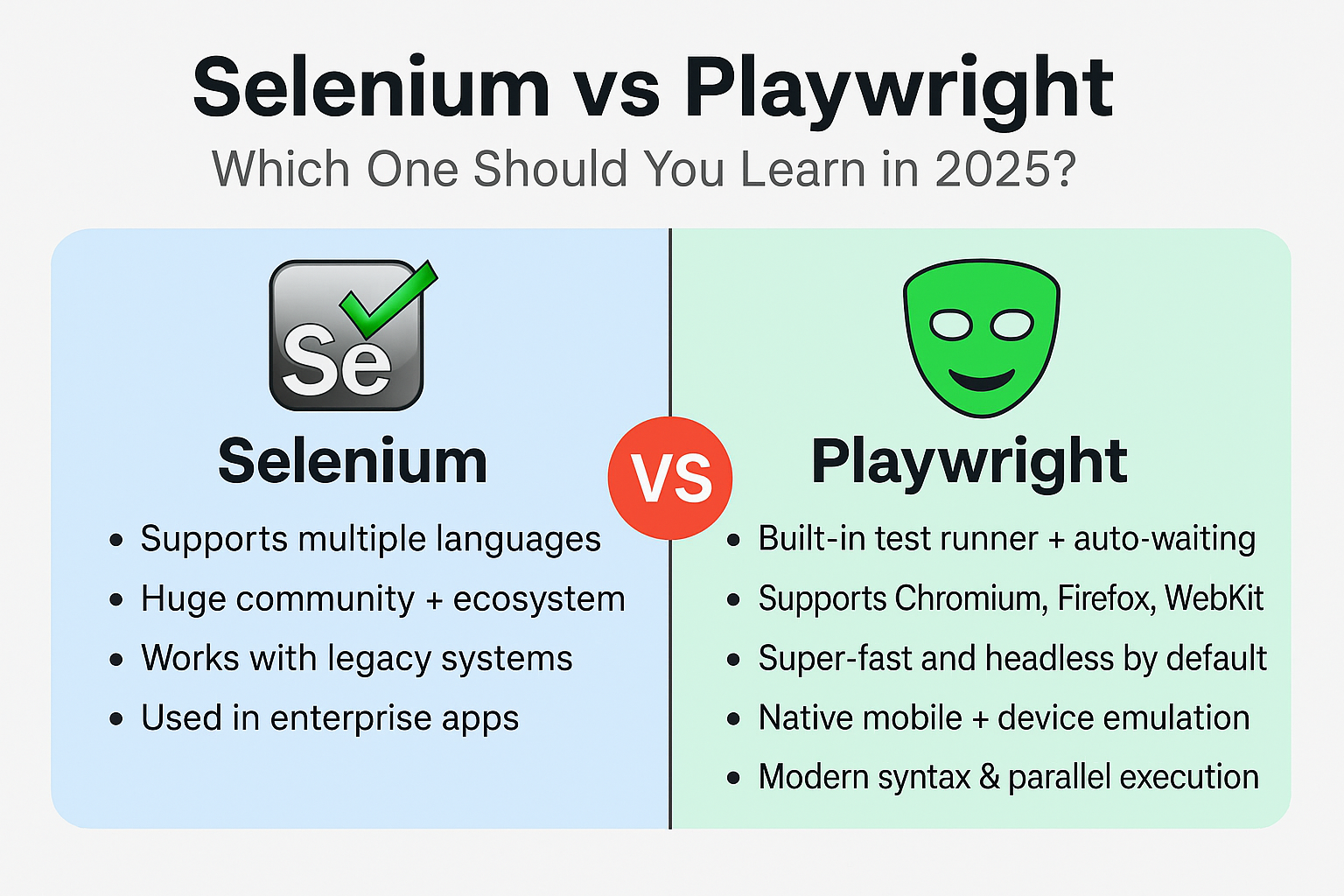
As a QA engineer or test automation enthusiast, you’re probably wondering:
👉 “Should I stick with Selenium or switch to Playwright?”
Let’s break it down 👇
⚙️ Selenium – The Industry Veteran
✅ Supports multiple languages: Java, Python, C#, JS
✅ Huge community + rich ecosystem
✅ Works well with legacy systems
✅ Used widely in enterprise-grade applications
But…
❌ Slower execution
❌ Needs external test runners
❌ Manual waits often needed
⚡️ Playwright – The Modern Challenger
✅ Built-in test runner + auto-waiting
✅ Supports Chromium, Firefox, and WebKit
✅ Super-fast and headless by default
✅ Native mobile + device emulation
✅ Modern syntax & parallel execution out of the box
But…
❌ Smaller community
❌ Mostly used with JavaScript/TypeScript (though supports Python, C#, Java)
🧠 So, which one should YOU learn in 2025?
📌 Learn Selenium if:
- You work in a Java/C#/legacy-heavy environment
- You’re applying to companies with existing Selenium test suites
- You want wide job opportunities across all industries
📌 Learn Playwright if:
- You’re working with modern web apps (React, Angular, etc.)
- You prefer speed, simplicity, and modern dev experience
- You want to stand out in startups or cutting-edge teams
💬 My Take:
Learn both if possible! Start with Selenium (for job market reach), and explore Playwright to be future-ready.
The best testers aren’t tool-obsessed, they’re problem-solvers 💡
 Learn 𝗦𝗲𝗹𝗲𝗻𝗶𝘂𝗺 (Latest V4) Automation with Java from Scratch to Advance- frameworks with end-to-end real time project through best Udemy course: Learn 𝗦𝗲𝗹𝗲𝗻𝗶𝘂𝗺 (Latest V4) Automation with Java from Scratch to Advance- frameworks with end-to-end real time project through best Udemy course:  https://shorturl.at/l7U3x https://shorturl.at/l7U3x |
#SoftwareTesting #QA #Playwright #Selenium #AutomationTesting #TestAutomation #CareerInQA #TechTrends2025 #SDET

